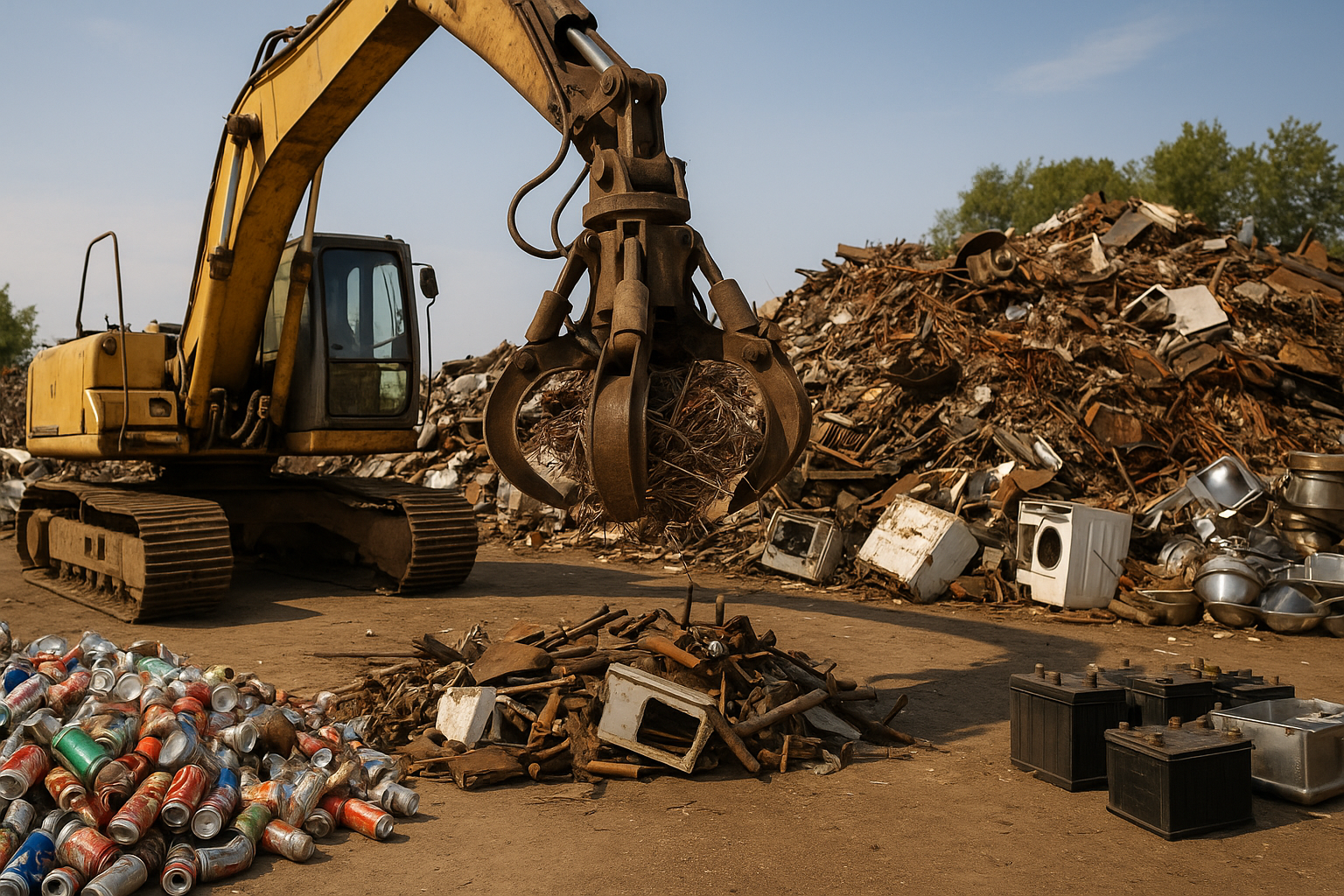
25 Jun Scrap Metal Recycling: How Your Junk is Saving the Planet and Your Wallet
Wondering what to do with that pile of old metal collecting dust in your garage? Recycling scrap metal isn’t just a smart way to clean up—it’s one of the easiest ways to help the planet and put money back in your pocket. From soda cans to copper wiring, your junk has serious value when it’s recycled the right way.
What Scrap Metal Recycling Really Means
Scrap metal recycling is the process of collecting, sorting, cleaning, melting, and reusing metal items rather than extracting raw materials from the earth. This includes everything from aluminum and copper to steel and iron. Items are broken down, refined, and then used to manufacture new products.
This circular process reduces the need for harmful mining operations, lowers greenhouse gas emissions, and saves vast amounts of energy.
Why Recycling Scrap Metal Matters
Here’s why recycling scrap metal is more important than you might think:
- Saves energy: Recycling aluminum saves up to 95% of the energy used to produce it from raw ore.
- Protects natural resources: It conserves iron ore, coal, and other non-renewable materials.
- Reduces landfill overflow: Metals take hundreds of years to break down in landfills.
- Decreases pollution: Less mining and smelting equals cleaner air and water.
- Fights climate change: It cuts CO₂ emissions significantly compared to raw metal production.
What Scrap Metal Can You Recycle?
You might be surprised at how many items contain valuable metals:
- Aluminum cans and siding
- Copper wiring and plumbing
- Steel appliances and auto parts
- Brass fixtures
- Lead-acid car batteries
- Stainless steel tools and cutlery
Almost every household or business has recyclable metal items. If it’s heavy and made of metal, it likely holds value.
How You Get Paid
Scrap yards pay by weight and metal type. Non-ferrous metals like copper, brass, and aluminum usually fetch higher prices than ferrous metals like steel and iron.
To get the best payout:
- Sort your metals before heading in
- Clean items of plastic, rubber, or insulation
- Call ahead to ask about current rates
- Bring ID, as most yards require it for transactions
Benefits to You
Besides the obvious cash reward, scrap metal recycling helps you:
- Declutter: Clean out your garage, shed, or business space.
- Boost local economies: Recycling centers generate jobs in collection, processing, and logistics.
- Lower environmental guilt: Feel good knowing you’re part of the solution, not the problem.
Even a few pounds of sorted metal can add up—especially if you bring in high-value materials like copper or aluminum.
Who Really Wins
Everyone benefits from scrap metal recycling:
- You, with quick cash and a cleaner home
- The planet, with less mining and waste
- Manufacturers, who save on raw materials
- Future generations, who inherit cleaner air and water
It’s a win-win across the board.
Where to Recycle Scrap Metal
Recycling centers and scrap yards are widely available in most towns and cities. Look for facilities that accept both ferrous and non-ferrous metals and have transparent pricing.
Some centers even offer pickup for large volumes of commercial or industrial scrap, helping businesses save time while staying green.
When to Recycle
Any time is a good time, but especially:
- After home renovations or demolitions
- When appliances or cars break down
- During garage or warehouse clean-outs
- After electrical or plumbing upgrades
Recycling regularly can become a routine way to earn passive income while minimizing your environmental footprint.
How the Process Works
The recycling journey is simple:
- Collect: Gather your old or unused metal items.
- Sort: Separate ferrous (magnetic) and non-ferrous (non-magnetic) metals.
- Clean: Remove non-metal parts like rubber or plastic.
- Deliver: Take your metals to a local scrap yard.
- Get Paid: Receive compensation based on weight and material.
Recyclers then shred and melt the metal before it’s reprocessed into new items like construction materials, cans, auto parts, or tools.
Common Myths About Scrap Metal Recycling
Myth: Only large amounts are worth recycling.
Truth: Even small amounts of valuable metal like copper can be worth cash.
Myth: It’s complicated and time-consuming.
Truth: Most yards make the process easy and fast, especially if you sort your items.
Myth: It’s only for businesses.
Truth: Households, hobbyists, and contractors all benefit.
Tips for First-Time Recyclers
- Keep magnets handy to separate steel from copper or aluminum.
- Label your sorted bins to save time later.
- Stay updated on market prices to recycle when rates are high.
- Ask the yard staff if they offer bonuses for large hauls or repeat visits.
Final Word: Your Junk Is a Resource
That rusted pipe, dented pan, or broken light fixture? It’s not just trash—it’s an asset. Every time you choose to recycle scrap metal, you help reduce global energy use, support jobs, and prevent environmental damage.
And let’s not forget—you get paid for doing the right thing.
At Atlas Iron & Metal Co, we make that easy. Whether you’re a homeowner cleaning up your garage or a contractor managing large-scale scrap, we’re here to help you turn junk into value—responsibly and efficiently.
Ready to recycle? Visit Atlas Iron & Metal Co and turn scrap into savings—while doing your part for the planet.


